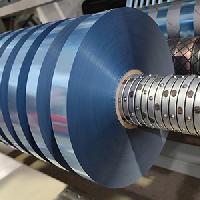The type and working principle of the slitting machine and the purchase suggestions

Posted by slittermachine
from the Business category at
08 Oct 2024 02:00:58 am.
First, Types of slitting machines:
1. Slitting machine: mainly responsible for cutting large rolls of base metal along the longitudinal direction, suitable for slitting paper, film, aluminum foil and other materials.
2. Cross-cutting machine: Opposite to the slitting machine, the cross-cutting machine is to transversely cut the material that has been slitted into a narrow width to produce fixed-length sheets or small rolls.
3. Round knife slitting machine: It adopts a circular knife for high-speed rotary cutting, which is suitable for continuous high-speed cutting of thin and soft materials.
4. Flat Knife Slitting Machine: Use a straight edge flat knife, which is suitable for cutting thicker or harder materials.
5. Guillotine slitting machine: cutting by guillotine with reciprocating motion up and down, suitable for cutting a wide range of different materials.
Second, the working principle:
The working principle of the slitting machine generally includes steps such as feeding, positioning, cutting, and winding. First of all, the parent coil material is evenly fed through the feeding device; The positioning system then ensures that the material is positioned exactly to the predetermined dimensions; Then, the cutting device (such as round knife, flat knife) accurately cuts the material under the command of the control system; After that, the cut material is wound into a finished roll by a winding device. The whole process is highly automated, ensuring cutting precision and efficiency.
Third, Purchase suggestions:
1. Clarify the requirements: Choose the appropriate slitter type according to the type of material to be processed (such as paper, film, metal), thickness, hardness and output requirements.
2. Precision and efficiency: Prioritize the cutting accuracy and work efficiency of the equipment, and the high-precision cutting head and stable tension control system are the key.
3. Convenient and safe operation: Choose equipment with a friendly operation interface and easy to maintain, and confirm whether it is equipped with complete safety protection measures.
4. Supplier service: Considering the manufacturer's technical support, after-sales service and spare parts supply, good after-sales service can effectively reduce downtime and maintenance costs.
5. Cost-effective: Comprehensively evaluate the performance, price and long-term operating costs of the equipment, and choose the most cost-effective products, rather than focusing on the initial investment cost.
To sum up, the selection of slitting machine needs to be based on specific application requirements, in-depth understanding of its working principle and various types of characteristics, and comprehensive consideration of supplier service and cost performance, so as to make informed purchasing decisions and provide a solid guarantee for production efficiency and product quality.
Tags: slitting machines
0 Comments



